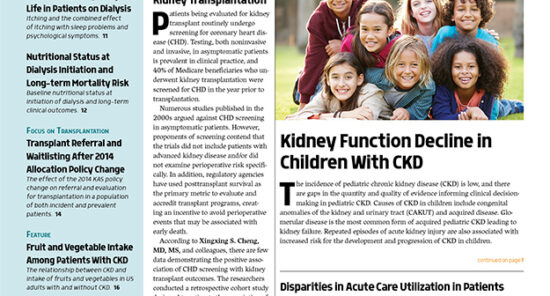Credit: Original article published here.Patients with glomerular disease may experience acute medical complications such as anasarca, infections, acute kidney injury, thromboembolism, and cardiovascualr events that require utilization of acute care (emergency department [ED] visit or hospitalization). In addition, patients with glomerular disease being treated with immunosuppressive therapies commonly experience infections that can result in utilization of acute care. According to Jill R. Krissberg, MD, MS, and colleagues, the risk of utilization of acute care may be affected by race, ethnicity, and socioeconomic status (SES). The researchers conducted a prospective cohort study designed to compare rates of acute care utilization across racial and ethnic groups in adults and children with glomerular disease in the CureGN (Cure Glomerulonephropathy) cohort. They sought to test the hypothesis that rates of acute care utilization would be increased among Black or Hispanic patients but that lower SES and more severe glomerular disease in those groups would explain any observed differences. Results of the study were reported in the American Journal of Kidney Diseases [2023;81(3):318-328]. The study cohort included 1456 adults and 768 children with biopsy-proven glomerular disease enrolled in the CureGN cohort. The study exposure was race and ethnicity as a participant-reported social factor. Race and
Disparities in Acute Care Utilization in Patients With Glomerular Disease


